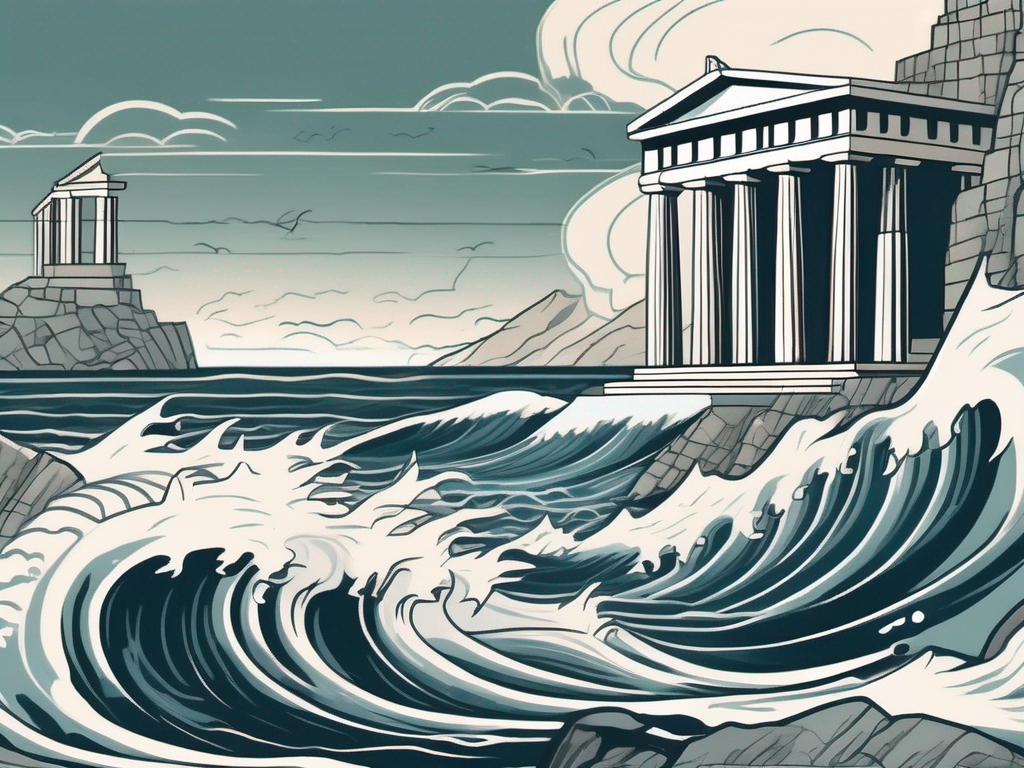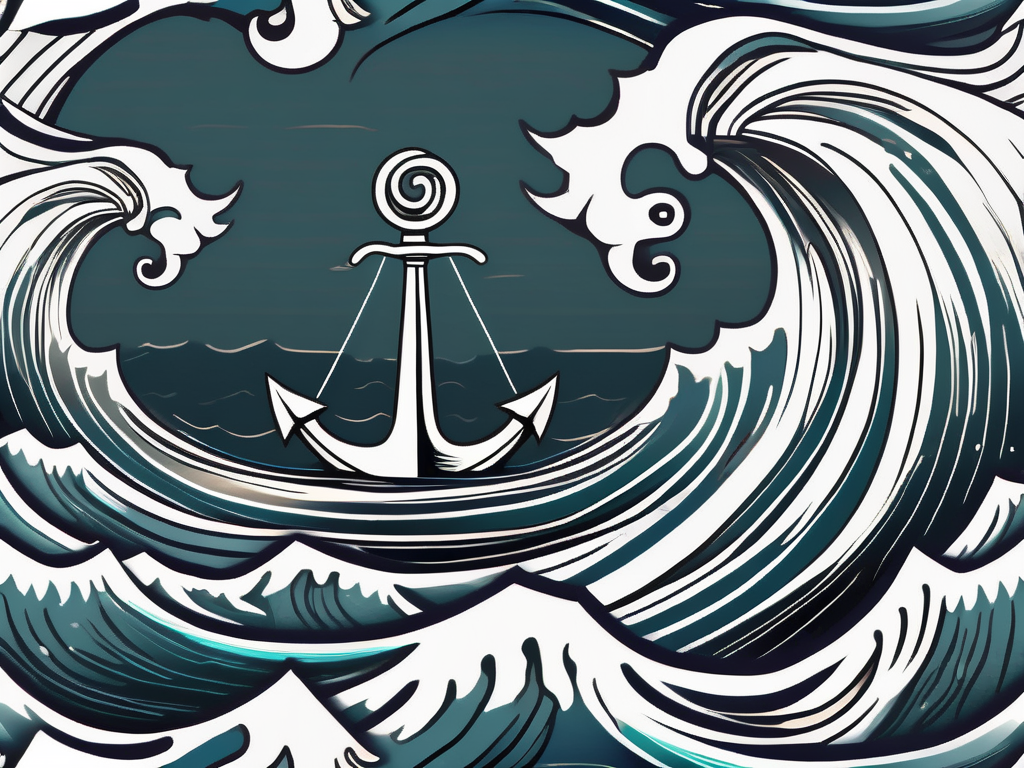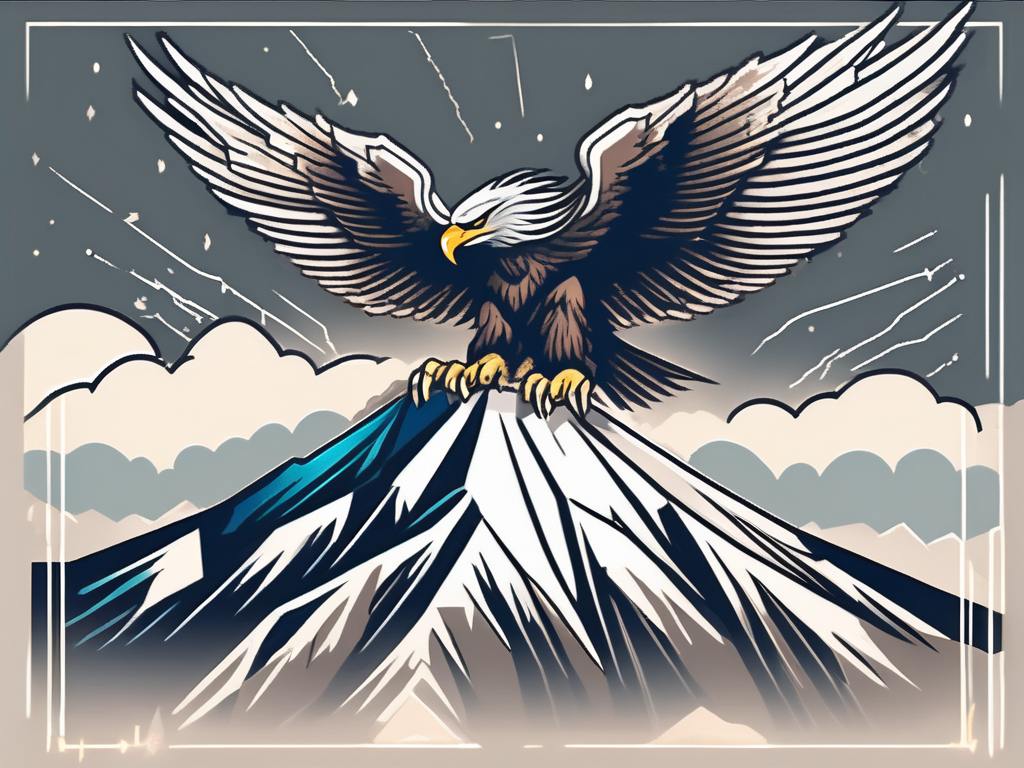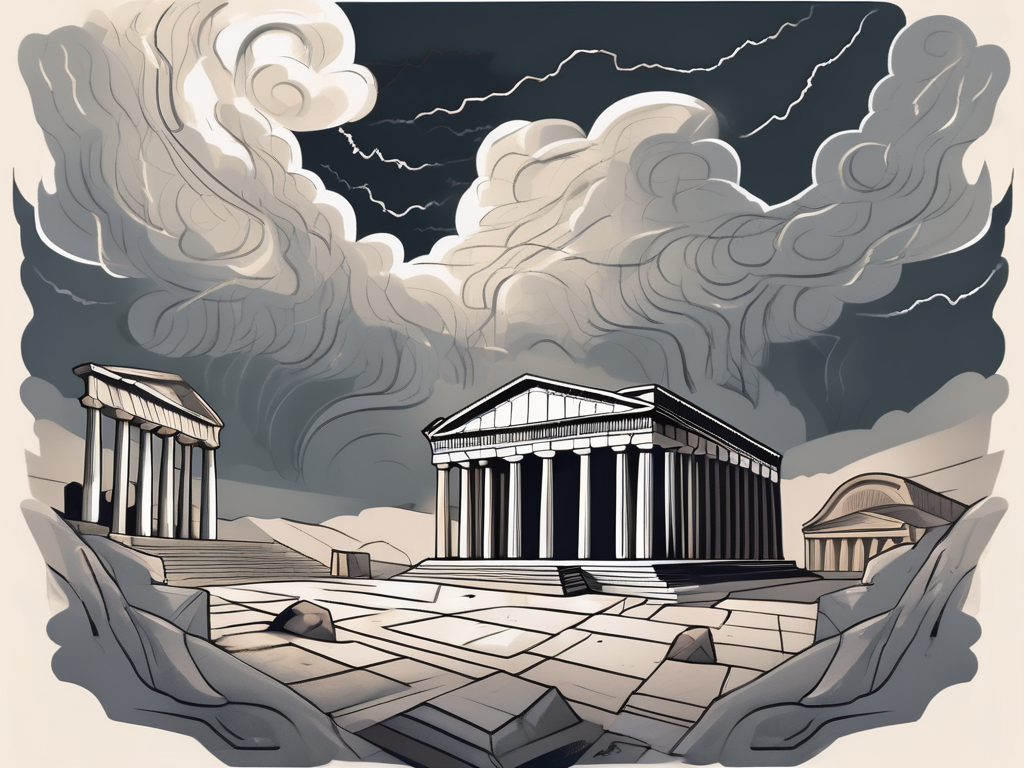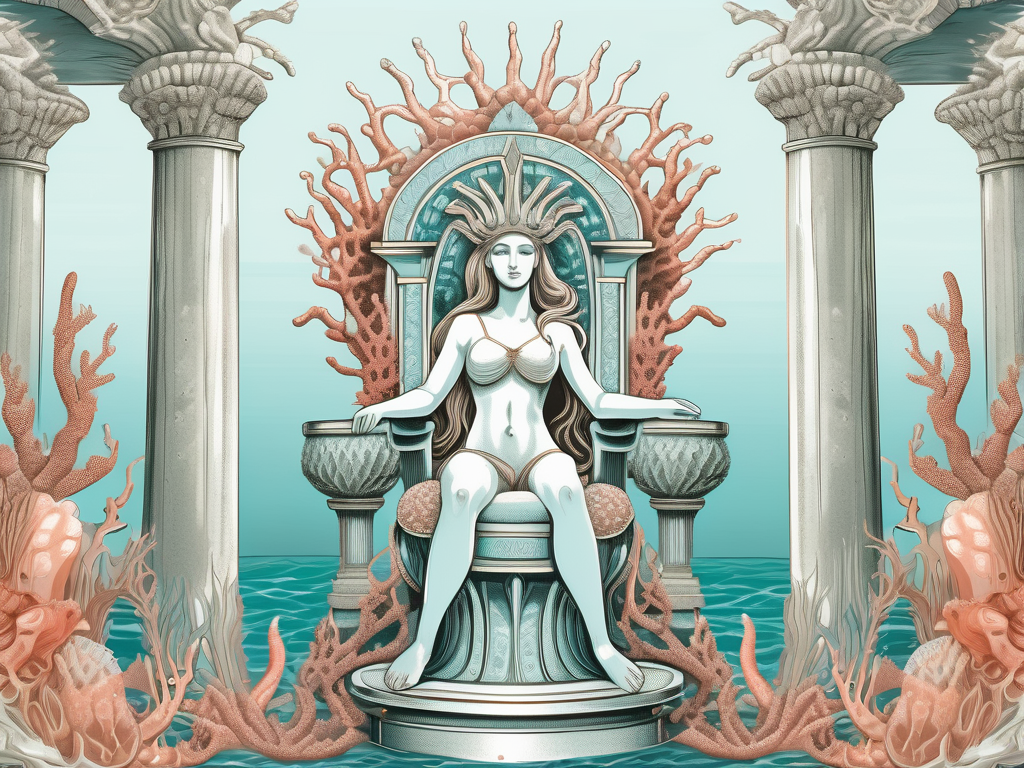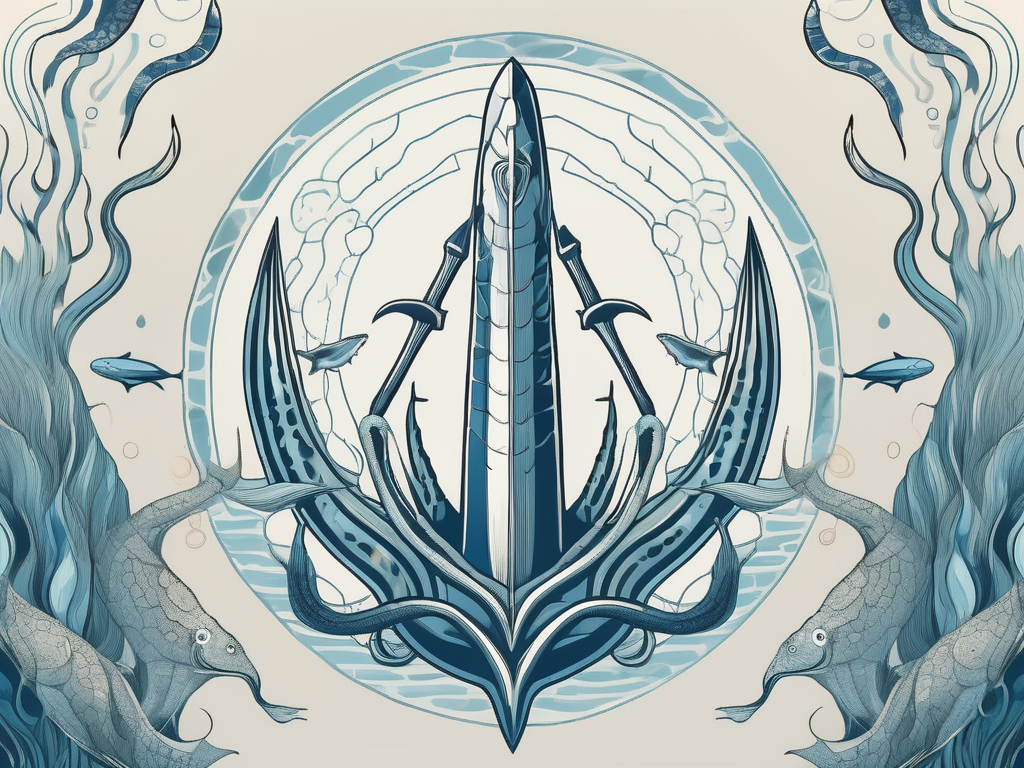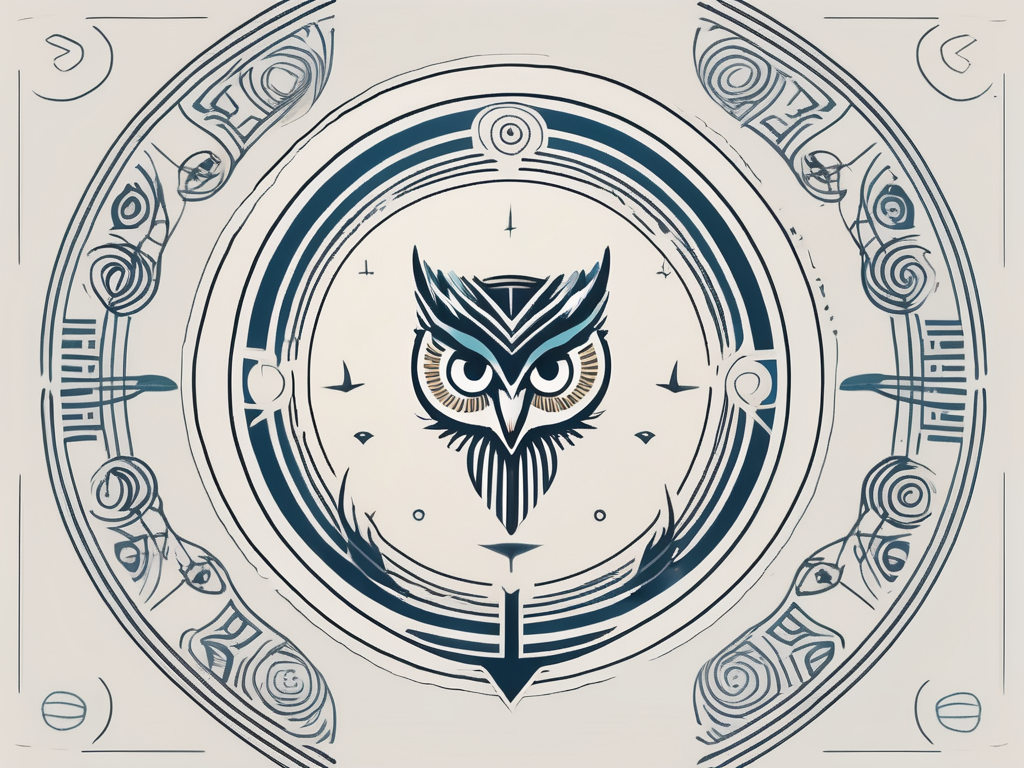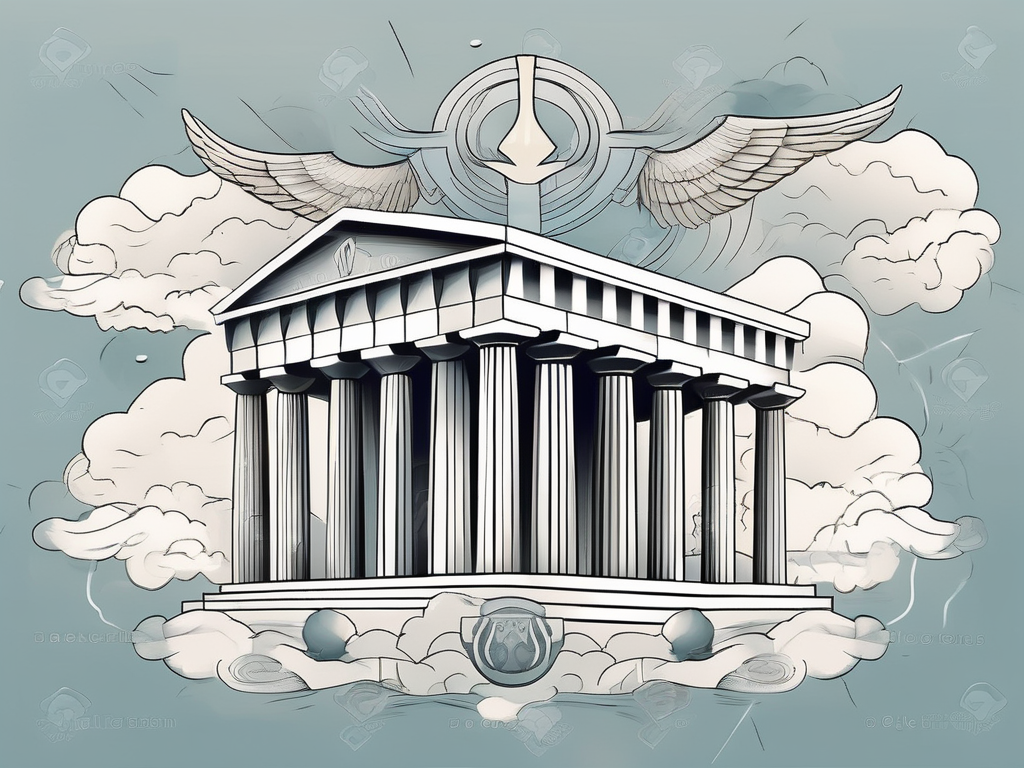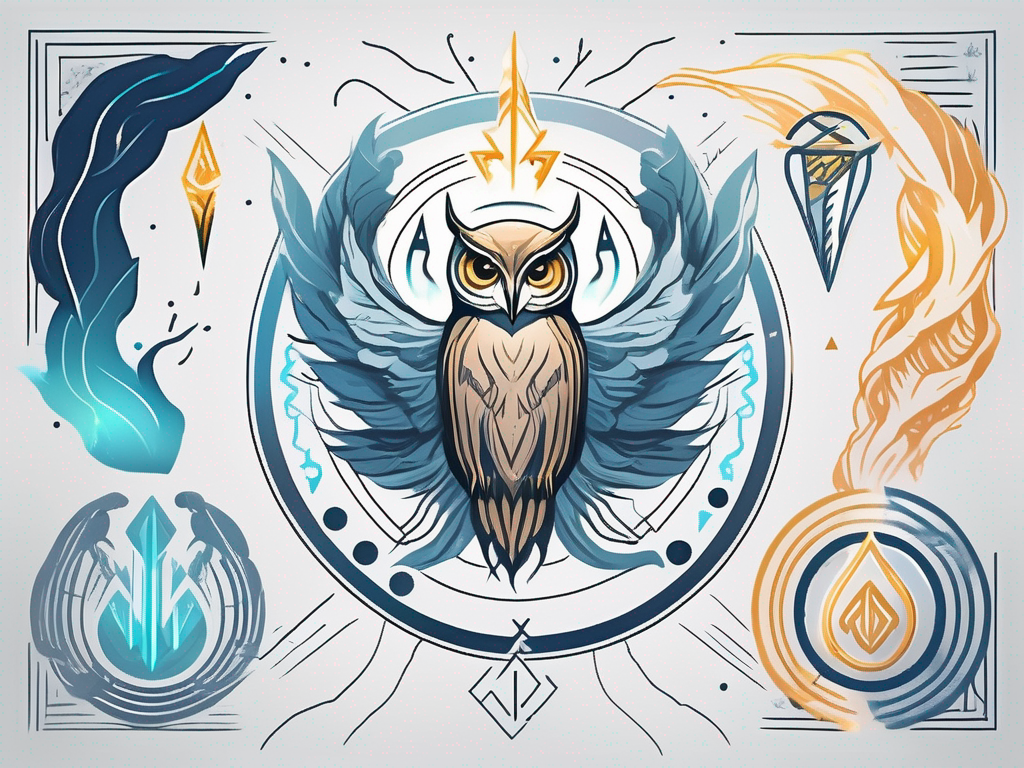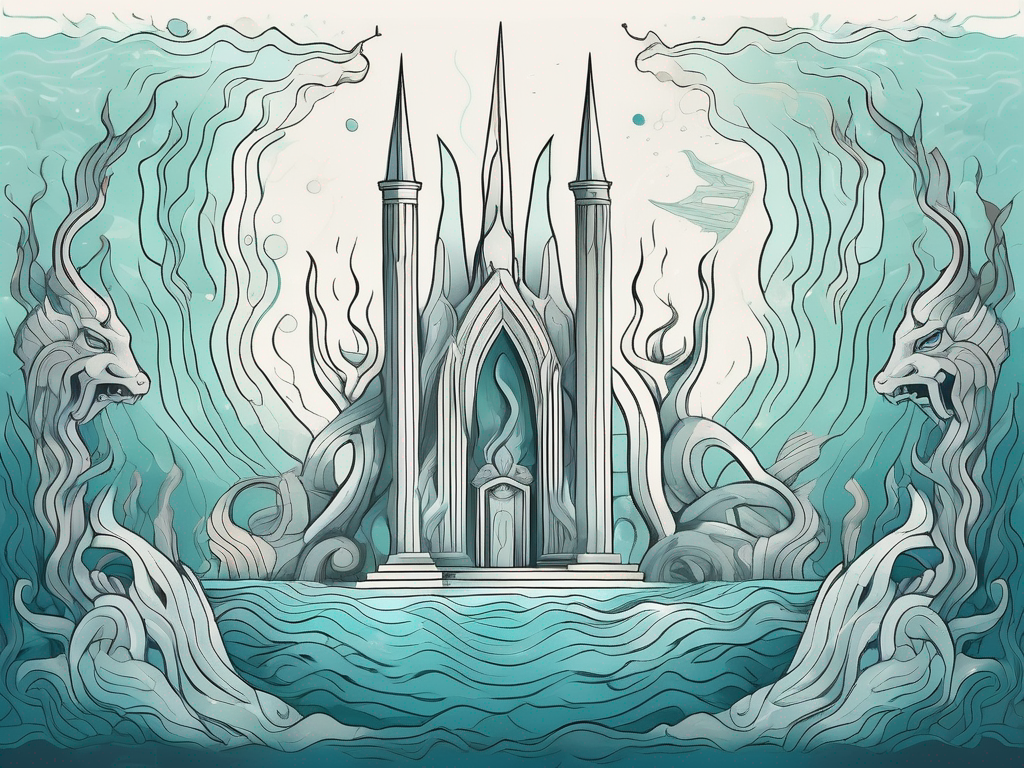In Greek mythology, there were numerous gods and goddesses who possessed incredible powers and abilities. One such deity, often overlooked in modern retellings, is Pontus. Unveiling the identity of Pontus allows us to delve into the rich tapestry of ancient Greek legends and explore the fascinating origins and remarkable feats of this powerful god. So, let’s embark on a journey to understand the mythical powers of Pontus.
Unveiling the Identity of Pontus
Pontus, the enigmatic god of the sea, holds a significant place in Greek mythology. However, compared to other prominent gods like Zeus or Poseidon, Pontus remains lesser-known. His mysterious origins have intrigued scholars and mythologists for centuries.
The Birth and Parentage of Pontus
Pontus was believed to be the son of Gaia, the Earth, and Aether, the personification of the upper atmosphere. Like many ancient gods, the details surrounding his birth varied depending on the mythological accounts. Some stories claim that Pontus emerged from Gaia’s fertile embrace alone, embodying the vastness and power of the sea.
According to other legends, Pontus was one of the twelve children born from the union of Gaia and her son Uranus, the sky. This would make him a sibling to the Titans and an ancestor to the Olympians, lending him a familial connection to the divine hierarchy revered by the ancient Greeks.
As the son of Gaia, Pontus inherited her primordial essence, which made him an embodiment of the chaotic and untamed forces of nature. This connection to the Earth and the sky bestowed upon him a unique perspective and power over the vast expanse of the sea.
Legend has it that when Pontus emerged from Gaia’s embrace, the sea rejoiced, its waves dancing in celebration of his birth. The creatures of the deep, from the majestic whales to the elusive mermaids, recognized him as their master and protector.
Pontus in Greek Mythology: A Brief Overview
Pontus’s association with the sea made him an influential deity in the ancient Greek pantheon. As the personification of the sea, he possessed immense power over its depths, its vastness, and its capricious nature. Sailors and seafarers would often seek his favor, offering prayers and sacrifices to ensure safe voyages.
While Pontus himself was not widely depicted in mythological tales, his influence extended beyond his personification of the sea. He played a crucial role in numerous legends, often serving as a catalyst for events that shaped the course of Greek history and mythology.
One such tale tells of Pontus’s involvement in the birth of Aphrodite, the goddess of love and beauty. It is said that when Uranus was castrated by his son Cronus, his severed genitals fell into the sea. From the foam that formed around them, Aphrodite emerged, fully grown and radiant. Pontus, as the personification of the sea, witnessed this miraculous event and welcomed Aphrodite as his own.
Another myth involving Pontus revolves around the story of the Argonauts, a group of heroes who embarked on a perilous journey to retrieve the Golden Fleece. As they sailed through treacherous waters, Pontus tested their courage and determination, unleashing powerful storms and sea monsters to challenge their resolve.
Despite his enigmatic nature, Pontus’s influence on Greek mythology cannot be denied. His presence in the pantheon of gods and his association with the sea continue to captivate the imaginations of scholars and enthusiasts alike, ensuring that his legacy endures through the ages.
The Power and Influence of Pontus
Pontus: The Personification of the Sea
Pontus’s power lay in his ability to control and manipulate the sea. As the god of all oceans, he commanded the waves, tides, and the creatures that dwelled beneath the surface. Sailors respected his authority, for defying Pontus often led to treacherous storms, monstrous sea creatures, and untold perils.
But Pontus’s power extended beyond mere control. He possessed an intimate understanding of the sea, its ebb and flow, its hidden depths and untamed beauty. His connection to the vast expanse of water was so profound that he could communicate with the creatures that called it home. Dolphins, whales, and even the mythical mermaids were said to be his companions, drawn to his benevolent presence.
Additionally, Pontus possessed the power to transform himself into various sea creatures, allowing him to explore the depths beyond mortal comprehension. In his shapeshifted forms, he could observe and interact with the inhabitants of the vast underwater realm, gaining insights into its secrets and mysteries. From the graceful dance of the seahorses to the majestic migration of the sea turtles, Pontus witnessed the wonders of the sea firsthand.
The Role and Significance of Pontus in Ancient Greek Culture
Ancient Greek culture revered the sea. It was both a source of sustenance and a mysterious frontier. Pontus’s power and influence over the sea made him a revered figure in Greek society, directly impacting their daily lives and belief systems.
Worship of Pontus involved elaborate rituals and ceremonies, often held near coastal areas. These rituals aimed to appease him and seek his protection against the perils of the sea. Offerings of food, flowers, and libations were made, accompanied by songs and prayers, in the hope of ensuring safe journeys and bountiful catches.
But Pontus’s significance went beyond practical matters. He symbolized the vastness of the unknown, the untamed forces of nature that both inspired and terrified the Greeks. His presence in their lives served as a reminder of their own mortality and the fragility of human existence in the face of the immense power of the sea.
Additionally, Pontus featured prominently in Greek mythology, inspiring poets, artists, and writers to create compelling works of art and literature that depicted his vast power and the awe-inspiring depths of the sea. From epic poems like Homer’s “Odyssey” to breathtaking sculptures and intricate mosaics, Pontus’s influence permeated every aspect of Greek culture.
Through their devotion to Pontus, the ancient Greeks sought to understand and navigate the unpredictable nature of the sea, to find solace and protection in the face of its tempestuous might. Pontus, with his power and enigmatic presence, became an integral part of their collective consciousness, forever intertwined with their myths, rituals, and artistic expressions.
The Offspring of Pontus: Gods and Monsters
The Union of Pontus and Gaia
Through his union with Gaia, Pontus fathered several notable offspring. One of the most famous was Nereus, the ancient sea god often depicted as a wise and prophetic old man. Nereus, along with his fifty daughters, the Nereids, served as the divine guardians of the sea, helping sailors and protecting them from harm.
Pontus’s union with Gaia also led to the birth of Eurybia, the goddess of mastery over the boundless sea, and Thaumas, the god of the wonders and marvels that lie beneath its surface. These offspring exemplified the diversity and power associated with the children of Pontus.
The Fearsome Children of Pontus
Pontus was also responsible for siring several monstrous creatures that struck fear in the hearts of mortals. One such offspring was Ceto, the terrifying sea monster often associated with monstrous sea creatures and dangerous whirlpools. Another was Echidna, a fearsome half-woman, half-snake creature who gave birth to many legendary monsters, including the Chimera and the Sphinx.
These monstrous children of Pontus embodied both the beauty and terror of the sea, serving as cautionary tales to mortals who dared to challenge the power of the gods.
Pontus in Literature and Art
References to Pontus in Ancient Greek Literature
Pontus’s influence extended beyond rituals and worship. He left an indelible mark on ancient Greek literature, serving as a source of inspiration for poets and storytellers. References to Pontus can be found throughout many of the great epic poems, such as Homer’s Odyssey and Hesiod’s Theogony.
Within these works, Pontus is often depicted as a force to be reckoned with, capable of both benevolence and wrath. His involvement in various heroic tales added depth and complexity to the narratives, highlighting the integral role he played in the lives of mortals and gods alike.
Depictions of Pontus in Art and Sculpture
Artists and sculptors also sought to capture the essence of Pontus and his powers in their creations. Paintings and sculptures featuring Pontus often showcased his imposing figure, adorned with symbols of the sea, such as shells, seaweed, and sea creatures.
In these artistic depictions, Pontus was often portrayed riding the waves, with a stern and commanding presence that invoked both awe and respect. His visage represented the untamed forces of the sea, reminding viewers of the vast and unpredictable nature of the ocean.
The Legacy of Pontus in Modern Times
Pontus in Popular Culture
While Pontus’s influence waned over time, traces of his legacy can still be found in modern popular culture. His representation in books, movies, and music serves as a testament to his enduring power and the captivating tales associated with his name.
Moreover, the legacy of Pontus extends beyond the realms of entertainment. It continues to inspire awe and reverence for the immense power and beauty of the natural world, encouraging us to appreciate and protect the oceans that Pontus embodied.
The Enduring Influence of Pontus in Contemporary Thought
Pontus’s significance is not limited to fictional realms. His role in ancient Greek culture and mythology continues to shape contemporary thought and understanding of the world around us. His portrayal as the god of the sea reminds us of the interconnectedness of all life and the immense power and fragility of our planet.
Through the exploration of Pontus and his mythical powers, we gain a deeper appreciation for the rich tapestry of Greek mythology and its enduring relevance. The legend of Pontus serves as a reminder that even the lesser-known gods possess remarkable stories and powers that can captivate our imagination and nourish our sense of wonder.
So let us embark on this journey, guided by the waves of Pontus, as we unveil the mythical powers of this enigmatic god and explore the depths of his origins and legends.
